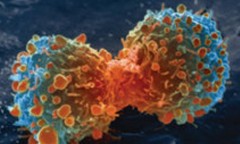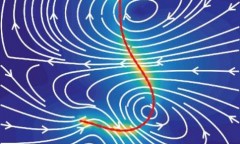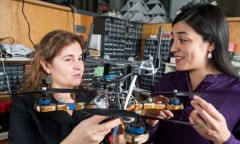By Arthur Dominic J. Villasanta , | March 24, 2017

Sennior citizens
A discovery that might lead to a revolutionary drug that can actually reverse ageing and improve DNA repair has been made by researchers at the University of New South Wales (UNSW) in Australia. It might even help NASA land its astronauts on Mars.
In a paper published in the peer reviewed journal Science, the UNSW team identified a critical step in the molecular process that allows cells to repair damaged DNA. Experiments in mice suggest a treatment is possible for DNA damage from ageing and radiation.
Like Us on Facebook
The results are so promising it has attracted the attention of NASA, which believes the treatment can help its Mars missions.
Scientists know cells have an innate capability to repair DNA damage, but our cells' ability to do this declines as we age. They also identified that "metabolite NAD+," which is naturally present in every cell of our body, plays a key role as a regulator in protein-to-protein interactions that control DNA repair.
Treating mice with a NAD+ precursor, or "booster," called NMN improved their cells' ability to repair DNA damage caused by radiation exposure or old age.
"The cells of the old mice were indistinguishable from the young mice, after just one week of treatment," said lead author Prof. David Sinclair of UNSW School of Medical Sciences and Harvard Medical School Boston.
"This is the closest we are to a safe and effective anti-ageing drug that's perhaps only three to five years away from being on the market if the trials go well."
The work has excited NASA, which is considering the challenge of keeping its astronauts healthy during a four-year mission to Mars.
NASA knows astronauts experience accelerated ageing from cosmic radiation even on short missions. Among the deleterious effects of space travel are muscle weakness, memory loss and other symptoms.
On a trip to Mars, the situation would be far worse: five per cent of the astronauts' cells would die and their chances of cancer would approach 100 percent.
For the past four years, Prof. Sinclair and Dr. Lindsay Wu have been working on making NMN into a drug substance with their companies MetroBiotech NSW and MetroBiotech International.
Human trials will begin at Brigham and Women's Hospital in Boston within six months.
-
Use of Coronavirus Pandemic Drones Raises Privacy Concerns: Drones Spread Fear, Local Officials Say

-
Coronavirus Hampers The Delivery Of Lockheed Martin F-35 Stealth Fighters For 2020

-
Instagram Speeds Up Plans to Add Account Memorialization Feature Due to COVID-19 Deaths

-
NASA: Perseverance Plans to Bring 'Mars Rock' to Earth in 2031

-
600 Dead And 3,000 In The Hospital as Iranians Believed Drinking High-Concentrations of Alcohol Can Cure The Coronavirus

-
600 Dead And 3,000 In The Hospital as Iranians Believed Drinking High-Concentrations of Alcohol Can Cure The Coronavirus

-
COVID-19: Doctors, Nurses Use Virtual Reality to Learn New Skills in Treating Coronavirus Patients










